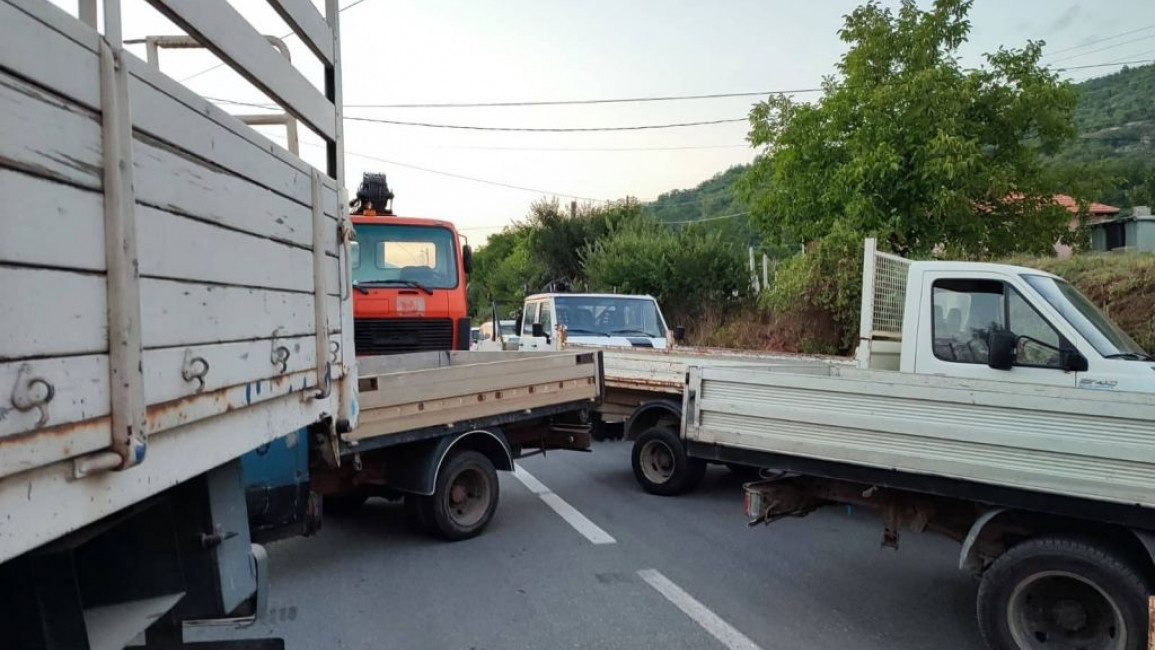Kosovo police close two Serbia border crossings after gunfire on officers
Kosovo police on Sunday closed two border crossings with Serbia after unknown gunmen fired on officers in the country's north and ethnic Serbs blocked roads, as tensions rise over Pristina's new border rules.
No one was injured during the incident, a police statement said.
Kosovo proclaimed independence from Serbia in 2008 but ethnic Serbs who make up the majority in the northern region do not recognise Pristina's authority.
Many remain politically loyal to Serbia which still provides financial support.
The latest tensions came after Pristina said from Monday, people entering Kosovo with Serbian IDs will have to replace them with a temporary document during their stay in the country.
The government also said ethnic Serbs who have registration plates issued by Serbia will have to change them for Kosovo licence plates within two months.
Prime Minister Albin Kurti said on Sunday it was a reciprocal move since Belgrade requires the same from Kosovo citizens entering Serbia.
On Sunday evening, hundreds of ethnic Serbs parked trucks, tankers and other heavy transport vehicles on roads towards the Jarinje and Brnjak crossings with Serbia, blocking traffic, an AFP correspondent said.
Large crowds of local Serbs gathered around the barricades with the intention to remain there.
Serbian President Aleksandar Vucic said on Sunday the situation in Kosovo had never been "more complex" for Serbia and ethnic Serbs.
"The atmosphere has been brought to a boil," Vucic said, warning that "Serbia will win" if Serbs are attacked.
Kurti accused Vucic of igniting "unrest".
"The following hours, days and weeks can be challenging and problematic," Kurti said on Facebook.
The last major tensions in the region were in September when hundreds of ethnic Serbs staged daily protests and blocked the traffic at the two border crossings.
Their anger was triggered by Pristina's decision to require drivers with Serbian registration plates to put on temporary ones when entering Kosovo.
Those entering from Kosovo had to do the same in Serbia.
EU-led talks between Kosovo and Serbia launched in 2011 have so far failed to achieve any normalisation of ties.
Kosovo is already recognised by roughly 100 states, including the United States and most EU countries, but Serbia refuses to do so.



